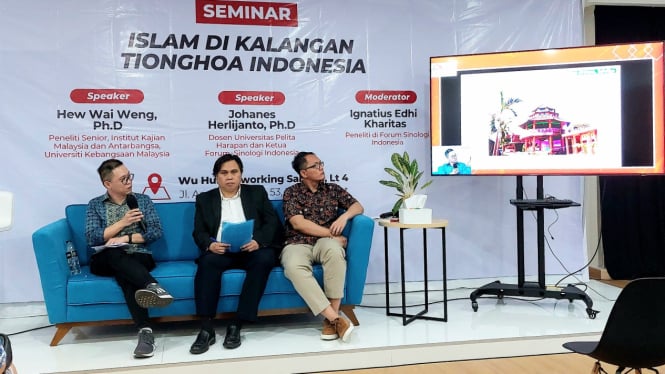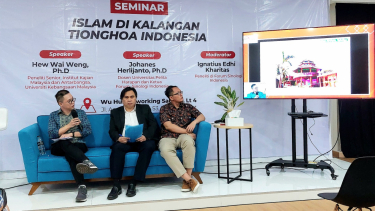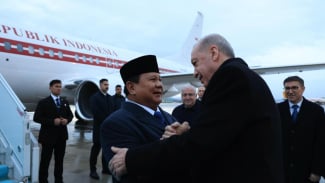Ethnic Chinese Can Build Bonds with Local Culture and Society
- Arianti Widya
VIVA – The Chinese culture has a significant influence due to its historical presence in Indonesia. Some Chinese people have embraced Islam.
Chinese Muslims are one example that ethnic Chinese have adapted and built bonds with the local culture and society.
The Chairman of the Indonesian Sinology Forum (FSI), Johanes Herlijanto said, "Ethnic Chinese are not only could influence and be influenced by various local traditions but also embrace the religion practiced by the majority of Indonesian people, namely Islam."
"Through the process of adaptation to the local community, Chinese Muslims build an identity that has its own uniqueness. In addition, it is different from the culture of people living in mainland China," Herlijanto said in a seminar entitled Islam among Chinese Indonesians organized by FSI, in Jakarta, on Tuesday.
"What is shown by Chinese Muslims adds to the evidence of various studies that have been conducted by historians," he remarked.
As Professor Wang Gungwu, a historian specializing in the study of overseas Chinese, has concluded over the past few decades, studies on migrants from mainland China show that migrants, often referred to as overseas Chinese, are people who can change and adapt.
"The ability to adapt and change is also inherent in Chinese Indonesians," Herlijanto stated.
According to Herlijanto, Chinese Indonesians have developed into a unique group, whose identity and culture are better understood through the concept of hybridity, a concept that refers to a culture that contains aspects of various other cultures.
There is a distinct culture between one Chinese ethnic group living and developing in one area and those living in another, he added.
In addition, Professor Hew Wai Weng, a senior research fellow at the Institute of Malaysian and Inter-National Studies (IKMAS), Universiti Kebangsaan Malaysia (UKM), Bangi, Malaysia, who also attended the seminar, emphasized the diversity among Chinese Muslims.
"Chinese Muslims have diversity in religion. There is not only one. There are different organizations," Weng said.
He also stated that the messages delivered by preachers are also diverse. "While many carry inclusive messages, there are also those who carry less inclusive messages."
However, there is also a common thread among them, which is the initiative to build a Chinese Muslim identity. This identity can be seen in the various mosques with Chinese characteristics.
Through this, Weng believes that Chinese Muslims on the one hand want to convey a cosmopolitan Islam.
"They also want to spread the inclusiveness of Chinese society. This inclusiveness can be seen in the willingness of Chinese people to be open in interacting with other ethnicities," he explained.
"Chinese Muslims not only adapt but also build intercultural interaction spaces, between non-Chinese Muslims and Chinese non-Muslims," he added.



















